It’s been a week since my last blog post, and I have yet to receive a single packet of Quavers. That’s the last time I do any product placement for a while. This week, I’ll be name-dropping instead.
In the 40-odd years of the video games industry’s history, the people behind the scenes have gone from faceless nobodies to (in some cases) billionaires. As you will remember from my blog post on Ten Great Gaming Easter Eggs, Warren Robinett created a secret room in the Atari 2600 game Adventure, crediting himself with the game’s creation. It’s not uncommon for the credits to run for more than 20 minutes at the end of a game nowadays, so perhaps Mr Robinett deserves credit (yes, pun intended) for highlighting creators’ contributions and bringing about a cult of personality.
There’s a lot of money to be made in gaming; for example, Grand Theft Auto V, on its recent release, outsold the entire music industry for the first month it was available, earning its creators a billion dollars in its first three days. Some of the names we’re going to look at have made a preposterous amount of money from their work, but they’re known more for their creative output and contribution to the medium. These are the Steven Spielbergs and Dave Grohls of the video game world, and arguably the van Goghs and Mozarts.
While I am aware that Vincent van Gogh’s Starry Night is not comparable to, say, a Mario game, it’s interesting to me that there is some crossover between those media.

Van Gogh fans, please don’t email me to complain.
These, then, are five of the most important people in the games industry to date, and are names that you most definitely should know if you’re to talk about gaming. Keep this page bookmarked for the next time you attend a dinner party with gaming-obsessed nerds like myself. Incidentally, my dinner calendar is very much open at the moment. I can’t think why.
Shigeru Miyamoto
Known for: Mario, Donkey Kong, The Legend of Zelda, Star Fox, F-Zero… a list as long as your arm, basically.
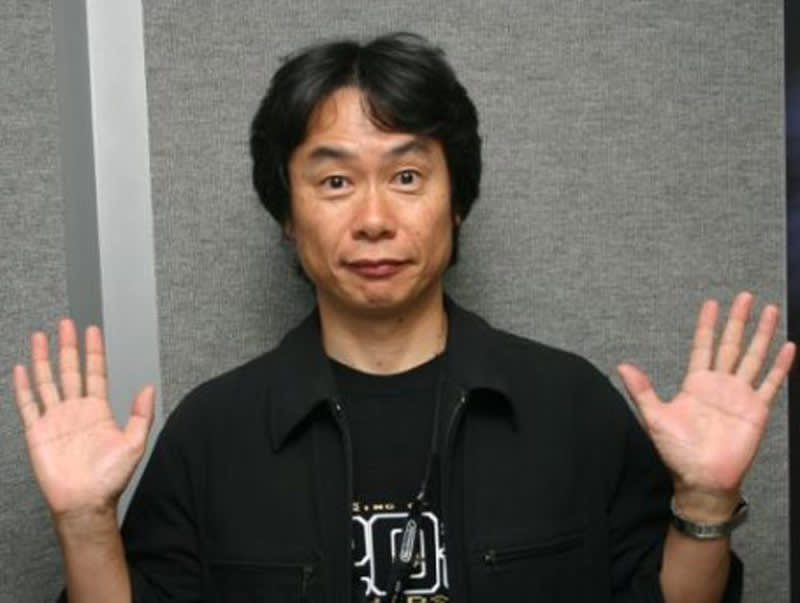
Miyamoto-san is, arguably, the most important figure in all of gaming. After some work as an artist at Nintendo, he cut his teeth with the creation of the Donkey Kong arcade game, which was innovative for so many reasons I can’t be bothered to go into them all here. He then adapted the main character, who was known as Jumpman, into Mario, creating the Mario Bros. arcade game. That game went on to spawn Super Mario Bros, which subsequently rescued the entire games industry after the 1983 crash (you’ll remember that from last week’s blog post).
Not satisfied with that, Miyamoto then created the Legend of Zelda series, based on his childhood adventures exploring the Japanese countryside, mentored Satoshi Tajiri as he created Pokémon (I’m sure you’ve heard of that), and developed Wii Sports, which everyone reading this, and their grandparents, have surely played by now.
Miyamoto has produced many of the most highly-regarded games of all time, including The Legend of Zelda: Ocarina of Time, which frequently tops predictable lists of the Best Games of All Time (it’ll certainly be near the top of mine, when I get around to boring you all with it). He’s been compared to Steven Spielberg by Time Magazine, called “the most influential game creator in history” by GameTrailers, and referred to as “one of the few video game auteurs” by The New Yorker. He’s a knight of the French Ordre des Artes et des Lettres, received the Spanish Prince of Asturias Award in recognition of his achievements in communication and humanities, and was voted Time Magazine’s Most Influential Person of the Year in 2008.

If you only remember one name from this list, it should be Shigeru Miyamoto.
Fun Fact: Miyamoto enjoys guessing the size of objects, and then measuring them to see if he was right. For this reason, he always carries a tape measure. Everyone needs a hobby, I suppose.
Gabe Newell
Known for: Half-Life, Portal, Steam
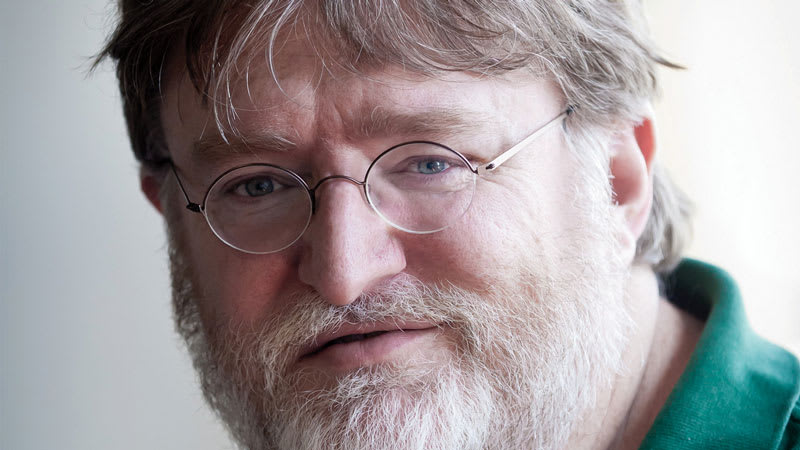
Gabe Newell is absurdly rich. His worth has been estimated at $1.3 billion dollars, putting him in the top 1500 richest people in the world. Having worked for Microsoft in the 80s and 90s, he left to form Valve Corporation and create one of the most highly-regarded games of all time: Half-Life. Valve then began work on Half-Life 2, but also on the innovation which would change gaming forever: Steam.
For those of you who haven’t heard of it, Steam is a digital distribution platform for games. Simply, it’s a program that sits on your home computer and allows you to buy games through the internet. Its arrival meant an end to the old pattern of buying a PC game, getting it home and installing it, downloading patches, updating the game, fiddling with registry settings, uninstalling and reinstalling it, building an entirely new PC with which to play the game and finally giving up and going outdoors. Steam allows you to click on a game through its online store, wait a while for it to download and install, and then play it, with updates automatically applied when developers make them available.
While there was some resistance to Steam in its early days, it’s now virtually ubiquitous on gaming computers, and since almost every developer wants their games to be on Steam (except EA and Ubisoft, who like to be difficult), and Valve take a cut of every sale, it’s not surprising that Gabe Newell has become so rich he could buy you and your family.

Fun Fact: Gabe collects knives. Here is his collection:

And I thought Miyamoto’s tape measure thing was weird.
Peter Molyneux
Known for: Populous, Black and White, Theme Park, Fable

Arguably the most famous British person in gaming, Peter Molyneux has created a plethora of fantastic games, and been awarded an OBE for his efforts. Starting out in 1982, he began selling games on floppy disks (remember them?), but he’s most well known for the companies Bullfrog and Lionhead, formed in 1987 and 1997 respectively, from which came some of the best and most well-known games in British history, including Populous, which is credited with inventing the “god game” genre (you played as a god and influenced your minions’ behaviour), and Theme Park, an unoriginally-titled game about running a theme park.
Peter Molyneux is now known not only for his history in creating fantastic games, but also as a man whose hype frequently exceeds his reach. When he has a game in development, he’s prone to making outlandish promises about what he’ll achieve and what you’ll be able to do in the game. This has led to the creation of a spoof Twitter account, “Peter Molydeux”, who comes up with absurd game ideas that sound like they could have come from the real Peter.

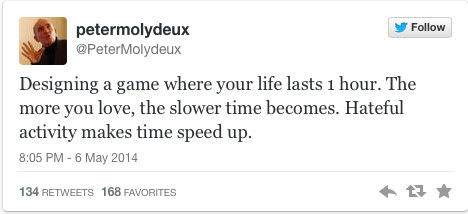
There is now an annual competition to make games in 48 hours, based on Peter Molydeux tweets.
Comedy accounts aside, the real Peter Molyneux remains a figurehead for gaming, partly because of what he’s already achieved, but partly because of his vision for where gaming is going.
Fun Fact: After his first game was a failure, Molyneux left game development and started a baked bean export company called Taurus. Commodore mistook it for TORUS, a company that made networking software, and gave Molyneux ten free computers to make software for them.
Yu Suzuki
Known for: Space Harrier, Out Run, After Burner, Virtua Cop, Shenmue
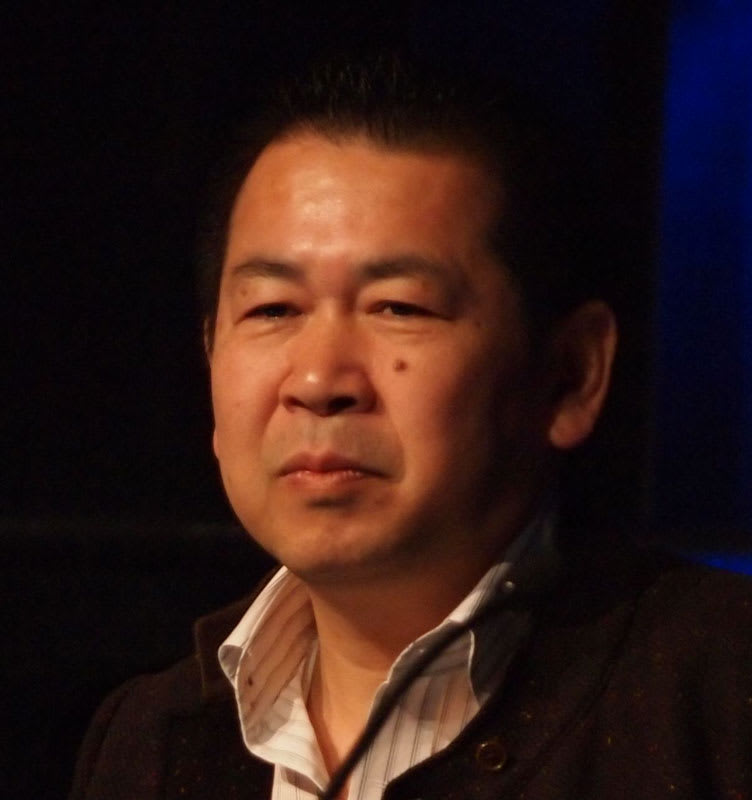
It’s no exaggeration to say that Yu Suzuki has created some of the most famous arcade machines of all time. After working on a couple of fairly mediocre arcade titles, he created Hang-On, an innovative machine that required the player to sit on a bike and lean for steering, sort of like a real bike. He then churned out a whole series of classic 80s machines, including Space Harrier, Out Run, Super Hang-On, Enduro Racer and After Burner, all of which are still great games to this day.
In the 90s, Suzuki adapted to the preference for 3D graphics and created Virtua Racing, Virtua Cop and Virtua Fighter (he may be a great developer, but he clearly isn’t much for thinking up great game names). Virtua Cop and Virtua Fighter each spawned several sequels, and then in 1999 came Shenmue, the most ambitious (and expensive) game of its time, on the Dreamcast. Suzuki had a vision of an epic story told across multiple instalments - it’s rumoured there were going to be twelve - but sadly after Shenmue II failed to bring in enough money the series was cancelled.
After Out Run 2 in 2003, Suzuki mostly disappeared from the games industry, and has since had little impact, aside from a couple of forgettable iPhone games. Still, his legacy can’t be ignored, in part due to the fact that I keep banging on about Out Run to you.
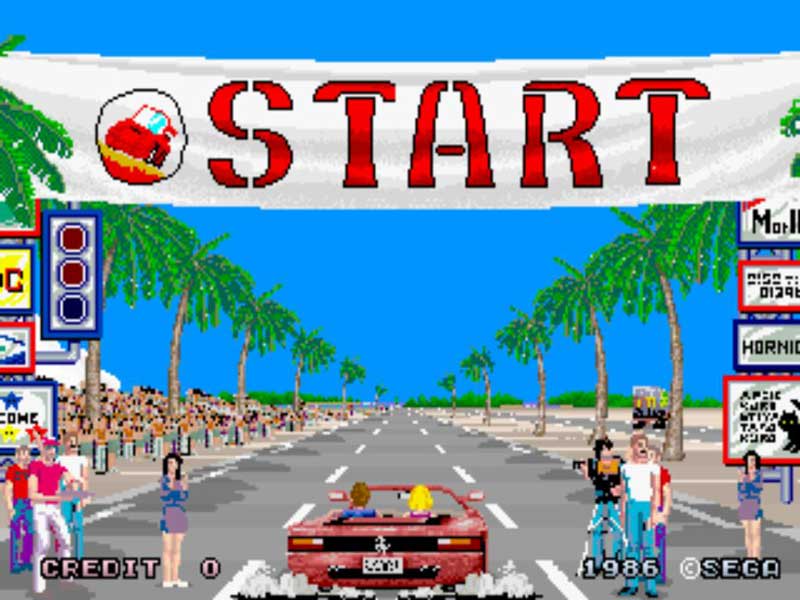
Fun Fact: Suzuki nearly became a dentist before settling on video game design. Sadly, this has not led to the creation of Virtua Dentist.
Will Wright
Known for: SimCity, The Sims

Will Wright is responsible for the inception of two of the biggest franchises in gaming: The Sims and SimCity. If you’ve never heard of either of them, you may have been living in a cave for the last twenty years or so. That being the case, you may want to refer to my blog post on Games for the Non-Gamer if you’d like to catch up. Things have moved along a little while you’ve been away.
The idea for SimCity came to Wright after he found that designing levels for his previous game, Raid on Bungeling Bay, was more fun than actually playing the game. He reasoned that a game about making a city could be fun, but had trouble selling the idea to publishers, who didn’t think that a game with no win or lose conditions could be fun. Not only did he prove them wrong, he proved it even further with The Sims, which is the best-selling PC game series of all time and has barely any objectives at all. Will Wright defined and redefined open-ended game play, showing that you don’t need a game to tell you how to have fun with it.
Wright has created a wide range of games, almost all of which start with the prefix “Sim”: SimCity, SimEarth, SimFarm, SimGolf and (bizarrely enough) SimAnt. After Spore in 2008, which was a disappointment compared to some of his other work, he started an entertainment think tank called Stupid Fun Club. I can’t help but think that Spore should have been called something beginning with “Sim”, and then it would have been better.
Wright was the first game designer to be given a fellowship by BAFTA, the British Academy of Film and Television. I think they need to rethink their name now that they deal with game development, too.

Anyone looks good in a tuxedo, even game developers. Well, sort of.
Fun Fact: Wright collects leftovers from the Russian space program, including control panels from the Mir Space Station and a seat from a Soyuz spacecraft. I guess that’s pretty normal by genius game developer standards.
So, we've looked at five of the most notable people in video gaming, but the list of important personalities is much longer than five. With that in mind, we’ll be returning to this topic in the future. I don’t want to give too much away, but these are five of the most normal, even taking into account collections of knives and Russian spacecraft bits.
Who do you think belongs in a list of important gaming luminaries? Would you rather hear more about the important people, or would you rather we spend time exploring the insane and absurd? Let me know! You can get in touch with me through the comments below, via Facebook, Twitter, Google +, or email [email protected].
Written By: Dave Morgan